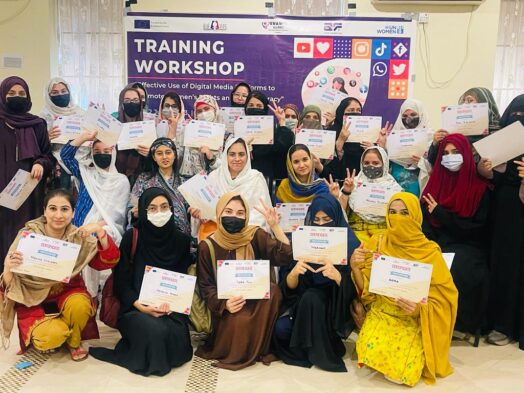By Muhammad Mohsin Iqbal
In the pursuit of lasting, positive peace that extends beyond the mere silencing of guns, the essential
role of women in mediation processes cannot be overstated. From economic recovery to social cohesion
and political legitimacy, women play a pivotal role in shaping a holistic and inclusive peace. Despite this,
their presence in peace processes remains disproportionately low, jeopardizing the long-term
sustainability of peace agreements.
Women's involvement in mediation processes contributes to a deeper understanding of conflict causes,
varied experiences during conflicts, and facilitates creative, comprehensive conflict resolution.
Beyond formal peace processes, women's unique contributions extend to peacekeeping operations.
Women peacekeepers, according to UN assessments, demonstrate equal competency to their male
counterparts and often have access to critical information in traditional cultures. This access enhances
intelligence gathering about potential security risks, making their participation vital.
In post-conflict recovery, women's participation in public sector positions significantly improves service
delivery, as demonstrated by various studies. Increased representation of women in leadership roles
correlates with enhanced reconstruction efforts, better service quality, and improved community
stability.
Children, who constitute the majority in conflict-affected areas, are disproportionately affected by
armed conflicts. According to the 12th Annual "Global Peace Index," the economic impact of violence is
staggering, amounting to $14.8 trillion in 2017. Children, subject to abductions, recruitment, and various
forms of exploitation, face enduring challenges affecting their well-being and development.
The United Nations Sustainable Development Goals (SDGs) emphasize the pivotal role of children in
building peaceful societies. The inclusion of women in peace processes significantly increases the
probability of agreements lasting at least two years by 20%, and at least 15 years by 35%, according to
UN Women.
In Pakistan, two of the three international borders are defined by armed conflict, creating a 'grey zone'
where civilians face continuous risks. The government's commitment to gender security and
participation in UN peacekeeping missions highlights progress, yet challenges persist.
As we grapple with global challenges, the call for inclusive peace processes, recognizing the vital role of
women, reverberates louder than ever. From conflict prevention to recovery, the meaningful
participation of women is not just a moral imperative but a strategic necessity. Inclusion must be the
cornerstone of our efforts to build a peaceful and prosperous future for all.
Women’s role in sustainable peace and security
18




